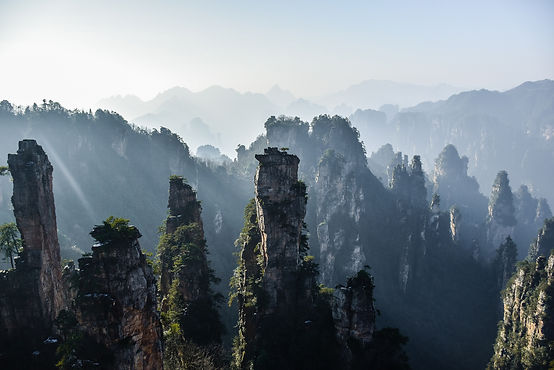

body. mind. spirit
a holistic and integrative system
embodied mindfulness
Taiji is not only a sophisticated martial art and a refined health system, it also offers a method for exploration of the self and the nature of reality through direct experience of moment to moment awareness.
Similar to other eastern meditation practices such as mindfulness, vipassana, zazen, mantra, whirling etc, Taiji is a method to bring the attention to the present moment here and now. In order to practice Taiji effectively, one must not be lost in thoughts, rather one must be 'in the body' with the feelings
In my view, 'embodied' mindfulness practices such as these are especially effective for modern people, and can be even more useful than sedentary practices such a mindfulness.
In my view Taiji can also function as a form of body psychotherapy. Through the practice one will discover and explore areas and tension and holding in the physical body that are psychosomatic, meaning they are linked to thought or emotional patterns. By opening and releasing them in the body, the mental patterns can also be loosened.

Trying to understand is like straining through muddy water. Have the patience to wait! Be still and allow the mud to settle
- Laozi
a personal perspective
Taijiquan is many things to many people. In my own life I would describe it as an inner journey to integrate and harmonise the mind, body and spirit. It is a deep and profound exploration of the human condition.
My journey in Tai Chi has felt more like a process of discovery than one of learning in the usual sense. It's as if the principles of Tai Chi are already in my body, lying dormant and waiting to be uncovered. As such, it is as much a process of unlearning as learning. Letting go of tension, holding, rigidity; both physical and mental, so that the principles can start to express themselves.
This is why Taijiquan is at the same time so uniquely challenging and rewarding. It is easy to graft some new knowledge on top of one's existing psychosomatic structure. But much more challenging is to change in a fundamental way the relationship between the body and the mind.
The rewards are great as well though. Old unconscious patterns of movement and behaviour will slowly be changed. A person will become more supple and responsive, less rigid and re-active; physically, mentally, and emotionally. Breaking out of habitual patterns and discovering new ways of being.
As a system Tai Chi beautifully elegant and wonderfully simple, yet extremely challenging. The further I travel, the simpler it feels, and the more unified I feel. Looking back along the path it all seems rather obvious, and I cannot remember how I could ever not have 'got' it. That is the beauty of learning it; that I am bringing myself back to a place that feels so natural, right, and easy that I cannot imagine ever having not been there.


He who knoes that enough is enough will always have enough
- Laozi
